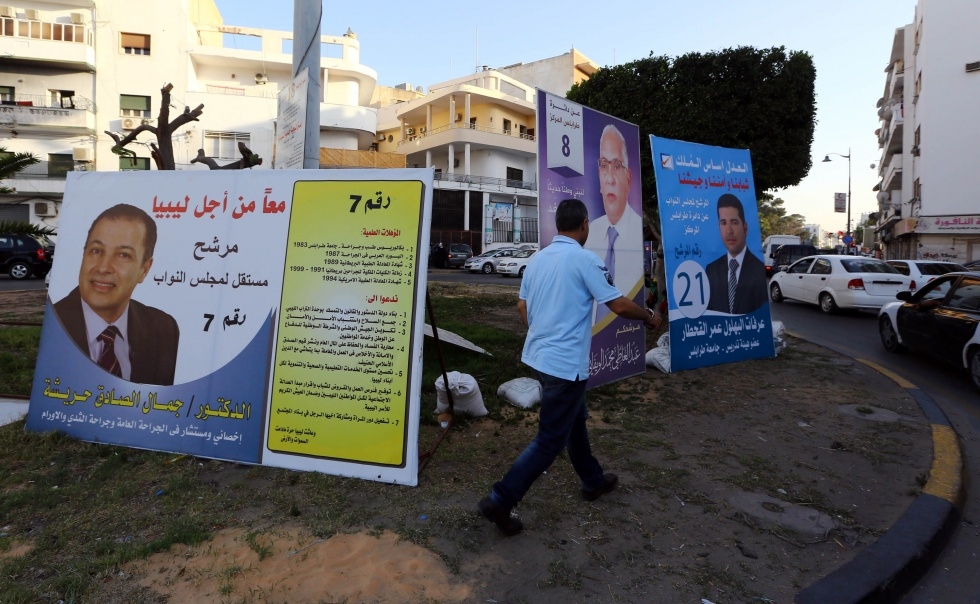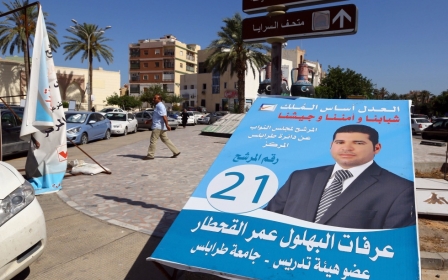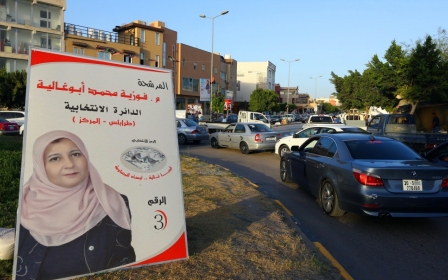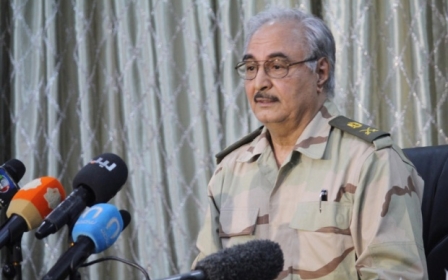Violence mars Libyan election a day before it begins

Libya’s state news agency said it is expecting around 1.5m people to cast ballots tomorrow across the country to elect members of the new parliament.
Turnout for Libyans voting abroad was estimated at around 38 percent, according to Libya Herald.
In the most recent nationwide poll, held in February 2014 to elect a constitution-drafting assembly, had a turnout of just under 50% of the 1m registered voters.
The interim government announced on Tuesday that Wednesday will be an official holiday throughout Libya.
The move is an attempt to “ensure wide popular participation and deepen the meaning of democracy”, according to a statement issued by the government and quoted in Libyan daily al-Wasat.
Security is being stepped up across Libya in preparation for the elections.
A spokesperson announced on Tuesday that every polling station in Libya would be guarded by at least 15 police officers.
There are plans to hold elections at 1,602 polling stations across the country.
However, the election process has already been marred by violence before it begins.
A parliamentary candidate from the city of Sebha in southern Libya was assassinated on Tuesday, a day ahead of Libya’s elections.
The candidate, Muhammad Badi Kawakwi, was killed by unknown gunmen in a drive-by shooting in the town, where the situation is “highly contested” according to army spokesperson Alaa al-Hawik.
The electoral commission in the city of Derna announced on Tuesday that it will not be holding elections on Wednesday.
The commission is closing its doors “out of fear of election offices being targeted by bombings”, according to a report published by Libya’s state news agency.
New MEE newsletter: Jerusalem Dispatch
Sign up to get the latest insights and analysis on Israel-Palestine, alongside Turkey Unpacked and other MEE newsletters
Middle East Eye delivers independent and unrivalled coverage and analysis of the Middle East, North Africa and beyond. To learn more about republishing this content and the associated fees, please fill out this form. More about MEE can be found here.




